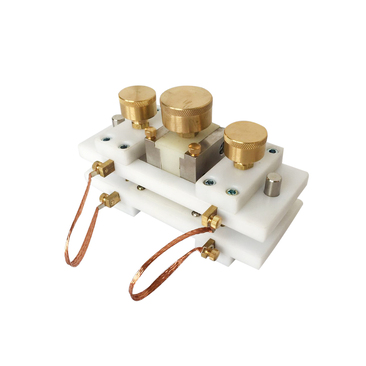cable flexibility test machine
Cable Flexibility Test Machine Ensuring Durability and Reliability in Cable Manufacturing
In today's fast-paced technological world, the demand for high-quality cables has increased significantly. These cables are integral to a wide range of applications, from powering devices to transmitting data. To ensure that these cables meet the necessary standards of flexibility and durability, manufacturers employ specialized equipment known as cable flexibility test machines.
A cable flexibility test machine is designed to evaluate the bending and flexing properties of cables under various conditions. By simulating real-world usage scenarios, this machine can detect weaknesses in cable design and materials, ultimately ensuring that only the most resilient products reach the market. The testing process evaluates how well a cable can endure repeated bending, twisting, and flexing without suffering damage or compromising its performance.
One of the key features of a cable flexibility test machine is its ability to apply consistent and uniform forces throughout the testing process. This is crucial for obtaining accurate and repeatable results. The machine typically utilizes a series of rollers or fixtures that hold the cable in place while it undergoes various bending cycles. Advanced machines may include programmable settings to replicate different angles and degrees of bending, allowing for comprehensive analysis of the cable's flexibility.
cable flexibility test machine

The importance of flexibility testing cannot be overstated. Cables are often installed in environments where movement is constant—such as in robotics, automotive applications, and portable electronic devices. If a cable is too stiff, it may break or fail prematurely, leading to costly downtime and repairs. Conversely, overly flexible cables may not provide adequate resistance to environmental factors, such as temperature fluctuations and mechanical stress.
In addition to evaluating the mechanical properties of cables, flexibility test machines can also be equipped with sensors to monitor electrical conductivity during testing. This ensures that the cable remains functional throughout the flexing process and helps identify potential failure points that could arise under stress. By combining mechanical and electrical assessments, manufacturers gain a comprehensive understanding of a cable's performance.
Moreover, the data generated from flexibility tests can inform design improvements and material choices. Engineers can analyze the results to refine cable construction, select stronger materials, or adjust manufacturing techniques, ultimately leading to improved products. This continuous improvement process is vital in a competitive market where consumer expectations for quality and reliability are at an all-time high.
In conclusion, the cable flexibility test machine plays a pivotal role in the manufacturing process of modern cables. By rigorously testing the flexibility and durability of cables, manufacturers can ensure that their products meet industry standards and consumer demands. The insights gained from these tests not only enhance product quality but also contribute to the ongoing evolution of cable technology, paving the way for safer and more reliable electrical solutions in the future. As technology continues to advance, the significance of such testing equipment will only grow, underscoring the need for rigorous quality assurance in the cable manufacturing sector.
-
Why the Conductor Resistance Constant Temperature Measurement Machine Redefines Precision
NewsJun.20,2025
-
Reliable Testing Starts Here: Why the High Insulation Resistance Measuring Instrument Is a Must-Have
NewsJun.20,2025
-
Flexible Cable Flexing Test Equipment: The Precision Standard for Cable Durability and Performance Testing
NewsJun.20,2025
-
Digital Measurement Projector: Precision Visualization for Modern Manufacturing
NewsJun.20,2025
-
Computer Control Electronic Tensile Tester: Precision and Power for the Modern Metal Industry
NewsJun.20,2025
-
Cable Spark Tester: Your Ultimate Insulation Assurance for Wire and Cable Testing
NewsJun.20,2025
 Copyright © 2025 Hebei Fangyuan Instrument & Equipment Co.,Ltd. All Rights Reserved. Sitemap | Privacy Policy
Copyright © 2025 Hebei Fangyuan Instrument & Equipment Co.,Ltd. All Rights Reserved. Sitemap | Privacy Policy
